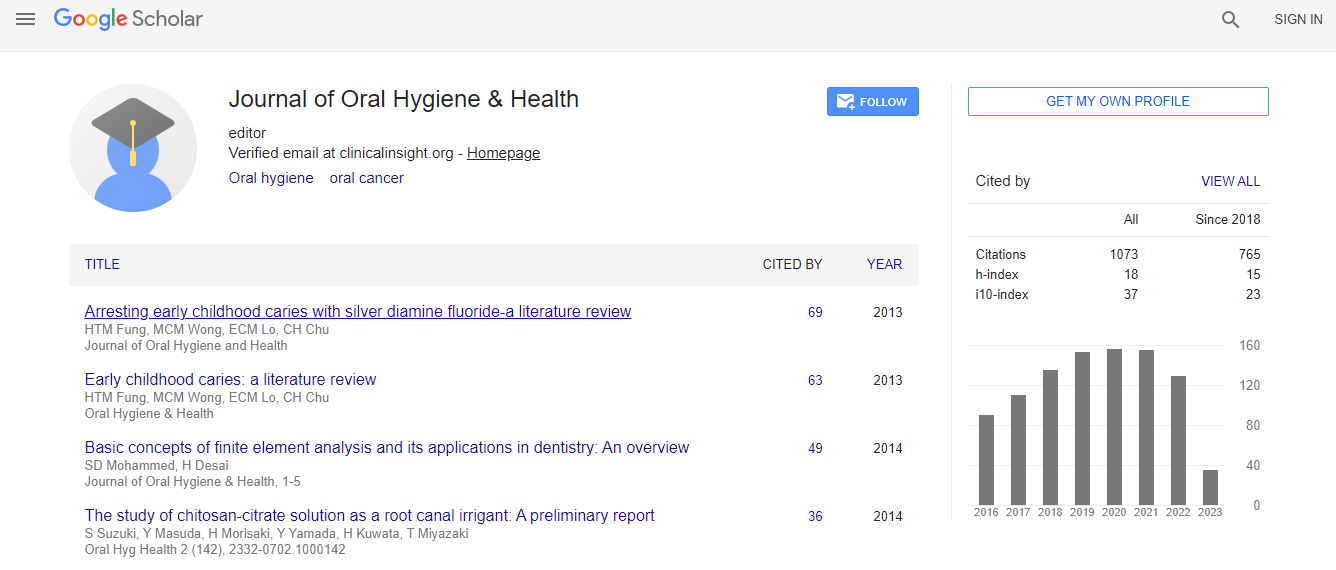Research Article
Oral Health Awareness of Onclogy Nurses at Charllotte Maxeke Johannesburg Hospital
Tsholofelo Mokale* and Maphefo D ThekisoFaculty of Health Sciences, University of Witwatersrand, Johannesburg, South Africa
- *Corresponding Author:
- Tsholofelo Mokale
University of Witwatersr and Department
of Community Dentistry, School of Oral Health
Sciences, Faculty of Health Sciences
7 York Road, Park town 2193, South Africa
Tel: (011) 717-2175
Fax: (011) 717-2625
E-mail: tsholofelo.mokale@wits.ac.za
Received Date: November 27, 2015; Accepted Date: February 16, 2016; Published Date: February 22, 2016
Citation: Mokale T, Thekiso MD (2016) Oral Health Awareness of Onclogy Nurses at Charllotte Maxeke Johannesburg Hospital. J Oral Hyg Health 4:199. doi:10.4172/2332-0702.1000199
Copyright: © 2016 Mokale T, et al. This is an open-access article distributed under the terms of the Creative Commons Attribution License, which permits unrestricted use, distribution, and reproduction in any medium, provided the original author and source are credited.
Abstract
Aim: The aim of the study was to investigate whether nurses working at oncology department staff are aware of the risk factors and clinical signs of oral cancer. The objectives were firstly to determine the level of awareness on the risk factors and the clinical signs of oral cancer amongst oncology nurses secondly to determine whether basic oral hygiene was taught in their curriculum.
Methods: The study was conducted among twenty full time nursing staff working in the oncology wards at the Charlotte Maxeke Academic Hospital. A self-administered questionnaire was used to assess the nurse’s level of awareness and knowledge on the risk factors, clinical signs and training on basic oral hygiene.
Results: Over 85% of the nurses thought that an oral health screening is very important although only 5% performed this task regularly and gave advice to their patients about the risk of oral cancer. Majority of the nurses could identify the common oral lesions observed in cancer patients such as Kaposi’s sarcoma (80%), ulcers and bleeding gums (95%), and stomatitis (85%) as indicated on. Nurses were categorized according to their level of education and rank 50% were professional nurses, 10% had oncology specialty qualification, 5% were professional nurses and 20% were staff nurses.
Conclusion: It is important for nurses to be able to diagnose oral cancer especially those based at the oncology department. Nurses awareness of oral cancer risk factors and clinical signs was poor. Thus there is a need to train nurses on oral cancer to make it viable for oral cancer screening of patients upon admission.

 Spanish
Spanish  Chinese
Chinese  Russian
Russian  German
German  French
French  Japanese
Japanese  Portuguese
Portuguese  Hindi
Hindi 
